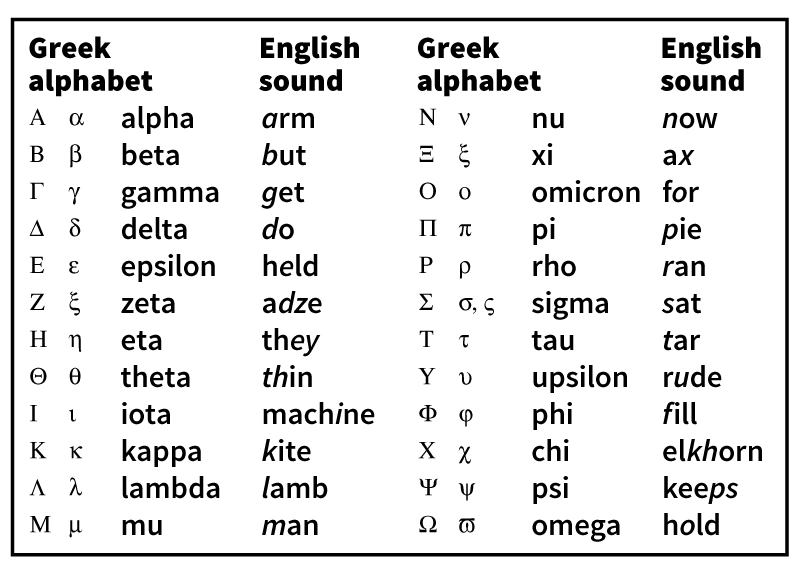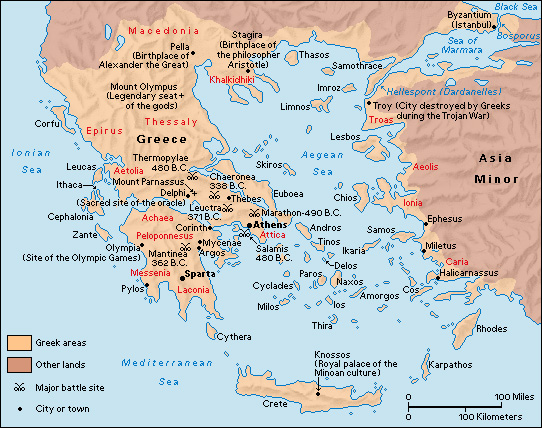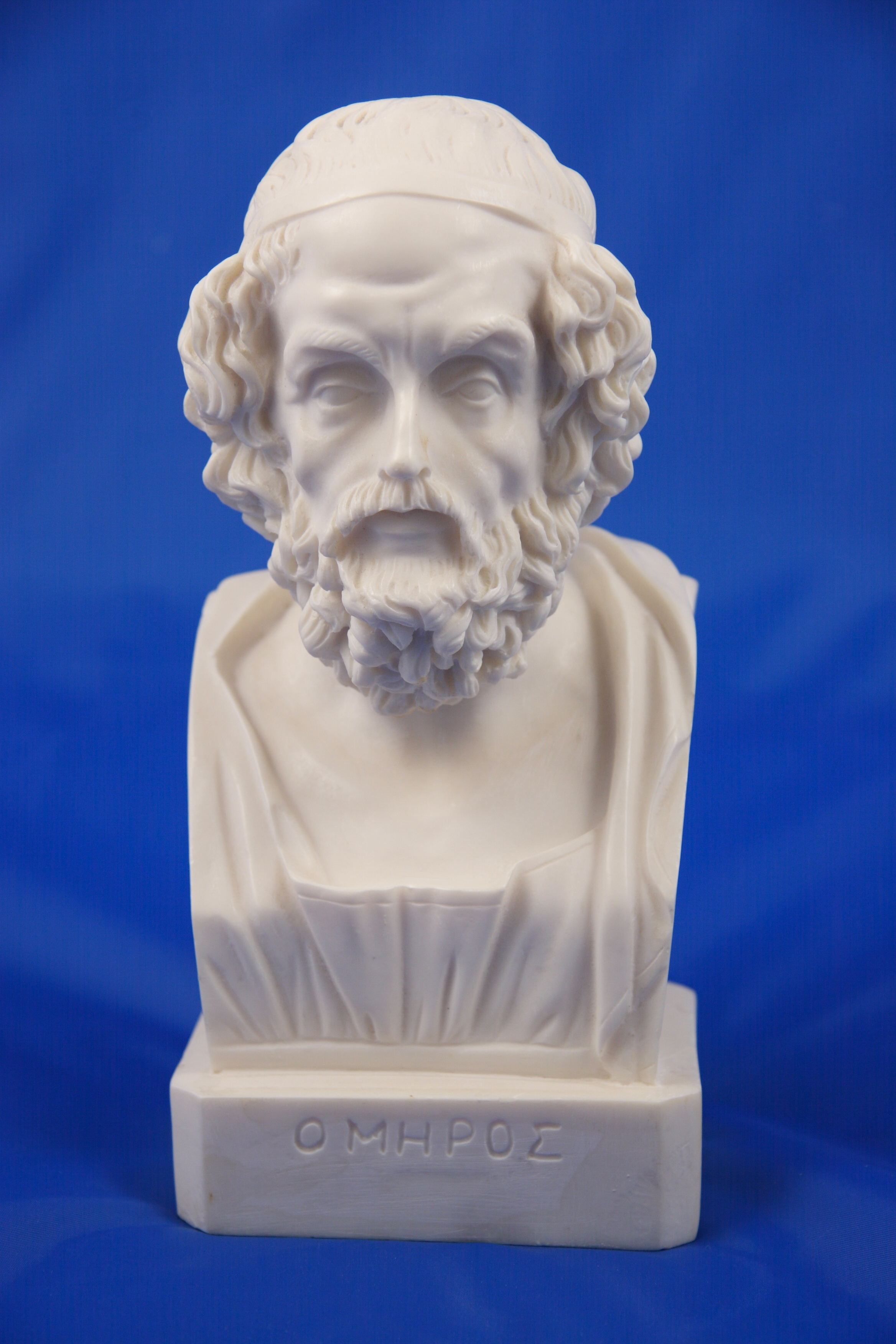Greek language is one of the oldest surviving branches of the Indo-European family of languages. Greek is related to Latin, Hittite, Old Slavic, Celtic, and the Germanic languages.
The ancient Greek language was highly inflected, much more than English. Inflection means that word forms are changed to show changes in meaning. In English, for example, the pronouns she, her, and hers use inflection to show the subjective, objective, and possessive case for a woman or girl. The use of inflection allows word order in ancient Greek sentences to be much less important for meaning than is the case with English. In ancient Greek, verb inflections show changes in time, manner, kind of action, or person acting. A fully inflected ancient Greek verb may have more than 500 forms.
Many English words come from Greek, often through Latin or one of the Romance languages. Scientific words from Greek include astronaut, ecology, geography, and psychiatry. Words of Greek origin used in the arts include architect, criticism, music, and poetry.
Alphabet.
Most of the alphabets of modern Europe are modeled on the Greek alphabet. The Greek alphabet was itself adapted from the alphabet of the Phoenicians sometime before 800 B.C. There were two main forms of the ancient Greek alphabet, the Western and the Eastern. The modern English alphabet can be traced to the Western form. The Eastern alphabet was used in classical Greek and evolved into the modern Greek alphabet still used today. The Eastern alphabet was also the ancestor of the Cyrillic alphabet. Forms of this alphabet are used in Russian and several other Slavic languages (see Russian language).

Greek at first was written from right to left. Later, one line was written from right to left and the next line from left to right. This form is called boustrophedon, which means “turning like oxen in plowing.” After about 500 B.C., the Greeks wrote all lines from left to right.
Development of ancient Greek.
The geography of Greece greatly influenced the development of its language. Mountains and deep bays isolated one group and region from another. Because of this isolation, the Greeks used many different dialects (variations of a language) before writing was introduced. But the dialects never differed so much that the Greeks of one region could not understand those of another.

The oldest Greek literary texts are the Iliad and the Odyssey, two epic poems attributed to Homer. The dialect in which these and certain other epic Greek poems are written is known today as Homeric Greek.

Another type of ancient Greek—Attic Greek—got its name from the place where it was spoken, a region of Greece known as Attica. The city of Athens, in Attica, was a center of Greek learning. Many famous works of Greek philosophy and literature are written in Attic Greek.
After the conquests of the Macedonian leader Alexander the Great in the 300’s B.C., people in the eastern Mediterranean spoke and wrote a simplified dialect that evolved from Attic. This dialect is known as koine (common dialect). The original language of the New Testament is koine. Greek in this form remained the common language for cultured people of many nations until sometime after the A.D. 300’s.
Scholars do not know when people first began to write in Greek. But in 1953, an amateur British cryptographer (person who translate things written in code) proved that one form of Greek writing dates back to at least 1400 B.C. Michael G. F. Ventris deciphered some inscriptions written in what are now called Linear B syllables. They showed that Mycenaean Greek was spoken and written in Knossos (in Crete) and Mycenae and Pylos on the mainland (see Ventris, Michael G. F.).
Later developments.
The Greek that evolved from koine was the language of the Byzantine Empire. It remained in use in Greece after the Ottoman Turks conquered the Byzantines in 1453. Some scholars date the beginning of the modern Greek language with the fall of the Byzantine Empire.
The spoken Greek language today is called demotic. When spoken, modern Greek differs from ancient in pronunciation and structure. When printed, modern Greek closely resembles koine. A reader of modern Greek can read the ancient language about as well as an English speaker would read Middle English (the form of English used from about 1100 to about 1485). Katharevousa, a formal written Greek language of the 1800’s, was used for official documents and in universities until the mid-1970’s. It has largely been replaced by written demotic.
See also Alphabet and the articles on each letter of the English alphabet.
